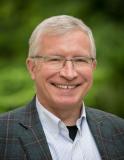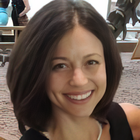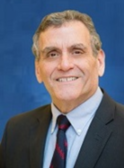Our Primary Team
This page lists the primary team at the Interdisciplinary Center for Bioethics at Yale University.
|
Director, Interdisciplinary Center for Bioethics Contact: stephen.latham@yale.edu |
 |
|
Stephen R. Latham, JD, PhD, is Director of the Yale Interdisciplinary Center for Bioethics. Before entering academia full-time, he was secretary to the AMA’s Council on Ethical and Judicial Affairs. He has been a graduate fellow of Harvard’s Safra Center on Ethics, a Research Fellow of the University of Edinburgh’s Institute for Advanced Studies in the Humanities, a vice-chair of the ABA Health Law Section’s Interest Group on Medical Research, Biotechnology and Clinical Ethics, and a board member and Secretary of the American Society for Bioethics and Humanities, from which he received a Distinguished Service Award. He is currently a member of the Hastings Center Fellows’ Council, and a councilor in the Ethics Section of the American Public Health Association. Latham’s 150+ publications on bioethics and health law have appeared in law reviews including the Journal of Law, Medicine and Ethics, the Journal of Legal Medicine, and the American Journal of Law and Medicine; in scientific and medical journals including JAMA, Nature; the New England Journal of Medicine, Lancet, and BMJ Open; in numerous university-press books; and in bioethics journals including the American Journal of Bioethics, the Journal of Clinical Ethics, the Journal of Medical Ethics, the Cambridge Quarterly of Healthcare Ethics, the Yale Journal of Health Policy, Law and Ethics, Public Health Ethics, and the Hastings Center Report, which he serves as a Contributing Editor. He has co-edited several books including the 6-volume Encyclopedia of Bioethics (MacMillan Reference USA, 4th ed. 2014); Genetics, Ethics and Education (Cambridge University Press, 2018); and The American Medical Ethics Revolution (Johns Hopkins University Press, 1999), which was named by Choice: Current Reviews for Academic Libraries as an “Outstanding Academic Title of 2000.” Latham’s current work deals with a wide range of bioethics issues from using perfused whole human brains for drug discovery to conducting research in the newly-dead, and from using social media to determine the causes of individuals’ risky sexual behavior to using e-health alerts to enhance the treatment of kidney failure during hospitalization. He has also recently begun teaching undergraduate and graduate courses in environmental ethics. Latham’s undergraduate Political Science course, “Bioethics and Law,” is among the largest classes at Yale College. Latham has served for several years as faculty chair of Yale’s Human Subjects Committee (its social/behavioral IRB), and currently co-chairs its Embryonic Stem Cell Research Oversight Committee. He has done clinical ethics consultation with both the Pediatric and the Adult Ethics Committees at Yale-New Haven Hospital and continues to serve on the Medical Review Board of Connecticut’s Department of Children and Families. Click here for his full CV. His Google Scholar profile is here. |
|
|
Lori Bruce, Doctorate in Bioethics, MA, MBE, HEC-C Research Scientist, Institution for Social & Policy Studies, Yale University Associate Director, Interdisciplinary Center for Bioethics, Yale University Director, Sherwin B. Nuland Summer Institute in Bioethics, Yale University Director, Community Bioethics Forum, Program for Biomedical Ethics, Yale School of Medicine Co-Director, Adult Ethics Committee, Yale-New Haven Hospital Contact: Lori.Bruce@Yale.edu |
 |
|
Lori is the Director of the Center’s Summer Institute in Bioethics, a Research Scientist at the Institution for Social & Policy Studies at Yale University, and an Associate Director at the Interdisciplinary Center for Bioethics. Her work centers on ethical policymaking and ethical policy analysis. She has influenced law and authored policy recommendations on scores of issues including ethics of psychedelics, medical aid in dying, trauma-informed policymaking, pediatric organ donation after cardiac death, infant safe haven and “baby box” laws, explicit consent for pelvic and prostate exams, palliative sedation, and doctor/patient social media communications. She has consulted for the President Obama’s Commission on Bioethics on community views relating to the Guatemalan syphilis research experiments and lectures nationally and internationally including such places as Walter Reed National Military Medical Center, US Coast Guard Academy, Monash University in Australia, the Centre for Values, Ethics and Law in Medicine at the University of Sydney, the Centre for Faith, Ethics and Society at University of Notre Dame Australia, and Harvard University. Lori is Co-Director of Yale-New Haven Hospital’s Adult Ethics Committee, serves on the Pediatric Ethics Committee, and is a member of Yale’s IRBs, reviewing medical research on AI, behavioral studies, and large-scale tissue and data repositories. She has also served on bioethics committees at Harvard, including the Cambridge Health Alliance and the innovative Community Ethics Committee and is the ethics consultant to Yale’s Gender Clinic. A former Executive Director of the Connecticut Coalition to Improve End-of-Life care, Lori has served on state health department steering committees for Medical Orders on Life-Sustaining Treatment (“MOLST”) and advisory boards for vulnerable populations. She is Vice President of Community Voices in Medical Ethics (a nonprofit) and directs the Community Bioethics Forum at Yale Medical School’s Program for Biomedical Ethics which accepts consult requests from policy-makers and amplifies the voices and values of community members in health and medical policies. This group has examined the ethics of a wide range of policies including invasive pediatric procedures by physicians-in-training, end-of-life options for the developmentally disabled, infant safe haven laws, and brain death. Lori’s graduate work is in policy analysis, bioethics, and neuroimaging with coursework from Harvard School of Medicine, Harvard Kennedy School, Boston University School of Medicine, and the Icahn School of Medicine at Mount Sinai in New York, with doctoral bioethics education from Loyola University Chicago. Lori’s experience also includes fMRI research on the neural mechanisms relating those who are prodromal to psychotic disorders, in a social neurosciences laboratory at Harvard University. She has taught summer seminars on Empathy and the Practice of Medicine, Neuroethics, and Ethical Policymaking, and her main interests include amplifying the voices of vulnerable populations in health policy, the “hidden curriculum” in medical schools, and the inclusion of policy analysis in bioethics. Her work has been covered in NBC Nightly News, Time magazine, the New York Times, the Journal of Medical Ethics, the American Journal of Bioethics, The Hastings Center Report, the Journal of Clinical Ethics, neuroscience journals, and other sources in both academic journals and the popular media. Her Doctorate in Bioethics is from Stritch School of Medicine, Loyola University Chicago. Click here for her CV. |
|
|
Mark R. Mercurio, MD, MA Associate Director, Interdisciplinary Center for Bioethics |
 |
| I have spent many years practicing and teaching neonatology at Yale and elsewhere. My interest in bioethics began with an undergraduate course taught by Paul Ramsey, and was rekindled during my neonatology training. I have spent the past 21 years serving on hospital ethics committees, chairing or co-chairing three of them, and thus have broad exposure to ethical dilemmas faced by clinicians, families, and patients of all ages. My main interest, however, has remained ethical issues in pediatrics. Many years ago I began auditing ethics-related classes at Yale, and then spent several years earning a Master’s Degree in philosophy at Brown. My academic focus for the past several years has been to apply philosophical concepts and reasoning to clinical problems. In that capacity, my work at the Bioethics Center has been to help bridge the main campus (the non-clinical faculty and staff of the Bioethics Center) and the medical campus, bringing the perspective and experience from each to the other. Last year I became an Associate Director of the Center, and I continue to work toward that end. I currently serve as Director of the Yale Pediatric Ethics Program, Associate Professor of Pediatrics at Yale University School of Medicine, and an attending neonatologist at Yale-New Haven Children’s Hospital. In addition, I direct education in medical ethics for the pediatrics residents and fellows, and physician associate students, as well as a seminar series in ethics for medical students. I am Chair of the Pediatric Ethics Committee. | |
|
Mary Evelyn Tucker, PhD Senior Scholar in Religion and Ecology |
 |
|
Mary Evelyn Tucker is a Senior Lecturer and Senior Research Scholar at Yale University where she has appointments in the School of Forestry & Environmental Studies as well as the Divinity School. She is a co-founder and co-director with John Grim of the Forum on Religion and Ecology. Together they organized a series of ten conferences on World Religions and Ecology at the Center for the Study of World Religions at Harvard Divinity School. They are series editors for the ten volumes from the conferences distributed by Harvard University Press. She is also Research Associate at the Reischauer Institute of Japanese Studies at Harvard. In 2011 Tucker completed the Journey of the Universe with Brian Swimme, which includes a book from Yale University Press, a film on PBS, and an educational series of interviews. She is also the author of Worldly Wonder: Religions Enter Their Ecological Phase (Open Court Press, 2003), Moral and Spiritual Cultivation in Japanese Neo-Confucianism (SUNY, 1989) and The Philosophy of Qi(Columbia University Press, 2007). She co-edited Worldviews and Ecology (Orbis, 1994), Buddhism and Ecology (Harvard, 1997), Confucianism and Ecology (Harvard, 1998), Hinduism and Ecology (Harvard, 2000), and When Worlds Converge (Open Court, 2002). With Tu Weiming she edited two volumes on Confucian Spirituality (Crossroad, 2004). She also co-edited a Daedalus volume titled Religion and Ecology: Can the Climate Change? (2001). She edited several of Thomas Berry’s books: Evening Thoughts (Sierra Club Books and University of California Press, 2006), The Sacred Universe (Columbia University Press, 2009), Christian Future and the Fate of Earth (Orbis Book, 2009). She is a member of the Interfaith Partnership for the Environment at the United Nations Environment Programme (UNEP). She served on the International Earth Charter Drafting Committee from 1997-2000 and is a member of the Earth Charter International Council. |
|
|
John Grim, PhD Senior Scholar in Religion and Ecology |
 |
| John Grim is currently a Senior Lecturer and Scholar at Yale University teaching courses that draw students from the School of Forestry and Environmental Studies, Yale Divinity School, the Department of Religious Studies, the Institution for Social and Policy Studies, and the Yale Colleges. He is Coordinator of the Forum on Religion and Ecology with Mary Evelyn Tucker, and series editor of “World Religions and Ecology,” from Harvard Divinity School’s Center for the Study of World Religions. In that series he edited Indigenous Traditions and Ecology: the Interbeing of Cosmology and Community (Harvard, 2001). He has been a Professor of Religion at Bucknell University, and at Sarah Lawrence College where he taught courses in Native American and Indigenous religions, World Religions, and Religion and Ecology. His published works include: The Shaman: Patterns of Religious Healing Among the Ojibway Indians (University of Oklahoma Press, 1983) and edited a volume with Mary Evelyn Tucker entitled Worldviews and Ecology (Orbis, 1994, 5th printing 2000), and a Daedalus volume (2001) entitled, “Religion and Ecology: Can the Climate Change?” John is also President of the American Teilhard Association. | |
|
Danielle Petrafesa Senior Administrative Assistant, Interdisciplinary Center for Bioethics Contact: danielle.petrafesa@yale.edu |
|